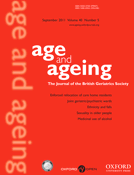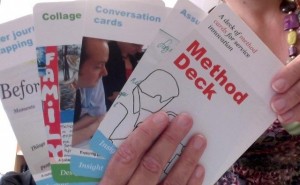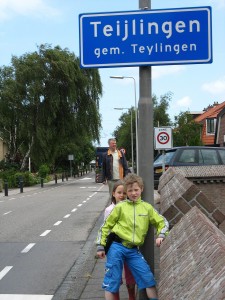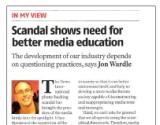 The deed is done. Copyright term extension for sound recordings from 50 to 70 years was adopted yesterday (12 September 2011) by qualified majority in the European Council. The remaining opposition came from Belgium, the Czech Republic, Luxembourg, the Netherlands, Romania, Slovakia, Slovenia and Sweden. Austria and Estonia abstained.
The deed is done. Copyright term extension for sound recordings from 50 to 70 years was adopted yesterday (12 September 2011) by qualified majority in the European Council. The remaining opposition came from Belgium, the Czech Republic, Luxembourg, the Netherlands, Romania, Slovakia, Slovenia and Sweden. Austria and Estonia abstained.
The chorus of approval has been led by aging artists, masking the fact that for more than a decade the lobby for copyright extension has been resourced by the multinational record industry (see related BBC news item). Labels do not want to lose the revenues of the classic recordings of the 1960s which are reaching the end of their current 50 year term. Rather than innovating, right holders find it much easier to exclude competition. Europe is in danger of locking away her music heritage just as digital technology is enabling the opening of the archives.
It is not surprising that many performers’ organisations and collecting societies support the Directive. They do not have to carry the costs – which will exceed EURO 1 billion to the general public (based on the Commission’s own figures – see calculations in Joint Academic Statement issued by Centre for Intellectual Property Policy & Management (CIPPM, Bournemouth University), the Centre for Intellectual Property & Information Law (CIPIL, Cambridge University), the Institute the Institute for Information Law (IViR, University of Amsterdam), and the Max Planck Competition and Tax Law (Munich).
72 percent of the financial benefits from term extension will accrue to record labels. Of the 28 percent that will go to artists, most of the money will go to superstar acts, with only 4 percent benefiting those musicians mentioned in the European Council press release as facing an “income gap at the end of their life times” (New rules on term of protection of music recordings, Council of the EU, 12/09/11). Many performers also do not appear to understand that the proposal would lead to a redistribution of income from living to dead artists.
In an interview with the NY Times yesterday, I said: “This is a dreadful day for musicians and consumers. Policymakers are schizophrenic, speaking a language of change and innovation, but then respond to lobbying by extending the right which gave rise to the problem in the first place. This only entrenches a cynical attitude toward copyright law and brings it into further disrepute.”
Sweden and Belgium issued dissents after the vote in the Council. They are worth quoting in full: Interinstitutional File: 2008/0157 (COD)
Declaration by Sweden
Throughout the negotiations, Sweden has had strong reservations regarding the commission’s proposal to extend the term of protection for sound recordings.
As regards copyright regulation in general Sweden has always stressed the importance of taking all relevant aspects and involved interests into account, in order to maintain a fair balance in the copyright system. We believe this to be essential if we are to successfully uphold respect for the copyright system in the future.
Extending the term of protection for sound recordings as proposed is neither fair nor balanced. It therefore risks undermining the respect for copyright in general even further. Such a development is very unfortunate for all those who depend on copyright protection to make a living.
Sweden believes there to be good reasons for measures aiming at improving the situation for those professional musicians and other artists who often operate under economically difficult conditions. Extending the term of protection will however not primarily be of benefit to this group.
Against this background Sweden regrets the decision to adopt the proposal amending Directive 2006/116/EC of the European Parliament and of the Council on the term of protection of copyright and certain related rights.
Belgian declaration
With regard to the proposal for a directive on the term of protection of copyright and certain related rights, Belgium believes that a term extension is not an appropriate measure to improve the situation of the performing artists. Furthermore, we believe that the negative consequences the proposal entails do not outweigh the advantages it brings. We can therefore not support this proposal.
It seems that the measure will mainly benefit record producers and not performing artists, will only have a very limited effect for most of the performing artists, will have a negative impact on the accessibility of cultural material such as those contained in libraries and archives, and will create supplementary financial and administrative burdens to enterprises, broadcasting organisations and consumers. Therefore, the overall package of the proposal appears, as demonstrated by a large amount of academic studies [1], unbalanced.
Finally, one has to observe that several initiatives which have clear links with and impact on the proposal, have recently been adopted or announced by the Commission in its Communication of 24 May 2011 [2]. These initiatives include for example a proposal for a directive on orphan works, a new initiative on collective management, and a new initiative on online distribution of audiovisual works. Taking into account this global approach of copyright issues in the internal market, we think that it would only be reasonable to re-examine the merits of this proposal in the context of this global approach.
Notes
[1] See e.g. “The Proposed Directive for a Copyright Term Extension – A backward-looking package” Centre for Intellectual Property Policy & Management (CIPPM, Bournemouth University), the Centre for Intellectual Property & Information Law (CIPIL, Cambridge University), the Institute the Institute for Information Law (IViR, University of Amsterdam), and the Max Planck Competition and Tax Law (Munich); N. HELBERGER, N. DUFFT, S. VAN GOMPEL, B. HUGENHOLTZ, ‘Never forever: why extending the term of protection for sound recordings is a bad idea’, EIPR 2008, 174; S. DUSOLLIER, ‘Les artistes-interprètes pris en otage’, Auteurs & Media 2008, 426.
[2] Communication from the Commission of 24 May 2011, A Single Market for Intellectual Property Rights Boosting creativity and innovation to provide economic growth, high quality jobs and first class products and services in Europe, COM (2011) 287
 Tomorrow, Tuesday 27th September 2011, is World Tourism Day and to celebrate this week on the research blog is Tourism Week. Every day the research blog will be highlighting stories about the excellent work going on in Bournemouth University’s School of Tourism.
Tomorrow, Tuesday 27th September 2011, is World Tourism Day and to celebrate this week on the research blog is Tourism Week. Every day the research blog will be highlighting stories about the excellent work going on in Bournemouth University’s School of Tourism. The deed is done. Copyright term extension for sound recordings from 50 to 70 years was adopted yesterday (12 September 2011) by qualified majority in the European Council. The remaining opposition came from Belgium, the Czech Republic, Luxembourg, the Netherlands, Romania, Slovakia, Slovenia and Sweden. Austria and Estonia abstained.
The deed is done. Copyright term extension for sound recordings from 50 to 70 years was adopted yesterday (12 September 2011) by qualified majority in the European Council. The remaining opposition came from Belgium, the Czech Republic, Luxembourg, the Netherlands, Romania, Slovakia, Slovenia and Sweden. Austria and Estonia abstained. With many of the leading journals in the field of Tourism and related studies now recording rejection rates in excess of 90%, the pressure is on all of us with an interest in publishing in such journals to enhance our level of engagement with the variety of alternative research methodologies available to us and to deepen our level of knowledge of those deemed most appropriate; as well as to improve the level of rigour with which we apply them in our work! In addition to constructive criticism from panel members of the level of conceptual and theoretical engagement in many papers reviewed for RAE2008, feedback from reviewers points to methodological weaknesses in papers submitted and a sense of frustration over the a lack of rigour and an apparent unwillingness to try contemporary approaches.
With many of the leading journals in the field of Tourism and related studies now recording rejection rates in excess of 90%, the pressure is on all of us with an interest in publishing in such journals to enhance our level of engagement with the variety of alternative research methodologies available to us and to deepen our level of knowledge of those deemed most appropriate; as well as to improve the level of rigour with which we apply them in our work! In addition to constructive criticism from panel members of the level of conceptual and theoretical engagement in many papers reviewed for RAE2008, feedback from reviewers points to methodological weaknesses in papers submitted and a sense of frustration over the a lack of rigour and an apparent unwillingness to try contemporary approaches. 

 Research by
Research by  Prior to this project Samuel undertook a systematic review of older people’s participation in falls prevention interventions. Earlier this year Samuel presented this research at a symposium in Italy for the European Congress of the International Association of Gerontology and Geriatrics, which he also co-chaired. He will also present this work as one of the six selected oral presentations at the forthcoming
Prior to this project Samuel undertook a systematic review of older people’s participation in falls prevention interventions. Earlier this year Samuel presented this research at a symposium in Italy for the European Congress of the International Association of Gerontology and Geriatrics, which he also co-chaired. He will also present this work as one of the six selected oral presentations at the forthcoming  This week BU is proud to launch the Fusion Fund to support staff innovation. Details and the application process for the fund are set out in the attached documents and the fund forms part of BU’s Higher Education Innovation Fund (HEIF) Strategy. The idea is to support innovative ideas which lead to employer, business or industry engagement enhancing core BU activity of research and education. Availability of funds are modest in the first year (although build in subsequent years) but the key is to provide an opportunity for staff to explore innovative ideas around Fusion. Ideas for new courses, enterprise ventures, industry secondments, or employer engagements can all be explored by this fund. It is designed to allow staff to develop new ideas and innovations!
This week BU is proud to launch the Fusion Fund to support staff innovation. Details and the application process for the fund are set out in the attached documents and the fund forms part of BU’s Higher Education Innovation Fund (HEIF) Strategy. The idea is to support innovative ideas which lead to employer, business or industry engagement enhancing core BU activity of research and education. Availability of funds are modest in the first year (although build in subsequent years) but the key is to provide an opportunity for staff to explore innovative ideas around Fusion. Ideas for new courses, enterprise ventures, industry secondments, or employer engagements can all be explored by this fund. It is designed to allow staff to develop new ideas and innovations! 
 The content of the Method Deck will be particularly informed by the findings from two recent research projects at HSC: The Gay and Grey Project (2006) funded by Big Lottery led by Dr. Fenge and The Gay and Pleasant Land? Project (2009-2012), funded by the UK Research Councils under the umbrella of the New Dynamics of Ageing Programme. The Method Deck will support practitioners to reflect on their own practice, the agency context and the wider structural issues which influence the experiences of older lesbians and gay men in their local communities. Development of the deck will begin shortly with the input of the project’s community partners.
The content of the Method Deck will be particularly informed by the findings from two recent research projects at HSC: The Gay and Grey Project (2006) funded by Big Lottery led by Dr. Fenge and The Gay and Pleasant Land? Project (2009-2012), funded by the UK Research Councils under the umbrella of the New Dynamics of Ageing Programme. The Method Deck will support practitioners to reflect on their own practice, the agency context and the wider structural issues which influence the experiences of older lesbians and gay men in their local communities. Development of the deck will begin shortly with the input of the project’s community partners.

 We would really appreciate your feedback on the new budget screen that we are designing for RED.
We would really appreciate your feedback on the new budget screen that we are designing for RED.  In May/June this year there was a lot of discussion on the
In May/June this year there was a lot of discussion on the  Dutch and Belgium names – Dutch names can have a range of different particles, the most common one is ‘van’. Also possible are, for example: ‘de’, ‘van der’, ‘van den’, ‘van het’, ‘op het’, or their abbreviated forms such as: ‘van ’t’, ‘op ’t’ or ‘v/d’. In the Netherlands, the particles take no capital letter, for example in de name of the former Manchester United goal keeper: Edwin van der Sar. According to Trask (2002: 106) in Flemish-speaking Belgium (and South Africa) it is more usual to capitalize particles, for example: Paul Van Look.
Dutch and Belgium names – Dutch names can have a range of different particles, the most common one is ‘van’. Also possible are, for example: ‘de’, ‘van der’, ‘van den’, ‘van het’, ‘op het’, or their abbreviated forms such as: ‘van ’t’, ‘op ’t’ or ‘v/d’. In the Netherlands, the particles take no capital letter, for example in de name of the former Manchester United goal keeper: Edwin van der Sar. According to Trask (2002: 106) in Flemish-speaking Belgium (and South Africa) it is more usual to capitalize particles, for example: Paul Van Look. 

 In the last few days, BU academics have achieved a series of major results by having their expertise featured in key national media outlets.
In the last few days, BU academics have achieved a series of major results by having their expertise featured in key national media outlets.











 TANGERINE project has lift off with BPC Indian Community!
TANGERINE project has lift off with BPC Indian Community! Postgraduate Research Experience Survey (PRES) 2024 – Closing today
Postgraduate Research Experience Survey (PRES) 2024 – Closing today THE INNOVATION COMMON ROOM: Going Old School
THE INNOVATION COMMON ROOM: Going Old School Apply for up to £1,000 to deliver an event and take part in a national festival of public engagement with research
Apply for up to £1,000 to deliver an event and take part in a national festival of public engagement with research MSCA Postdoctoral Fellowships 2024
MSCA Postdoctoral Fellowships 2024 Horizon Europe News – December 2023
Horizon Europe News – December 2023